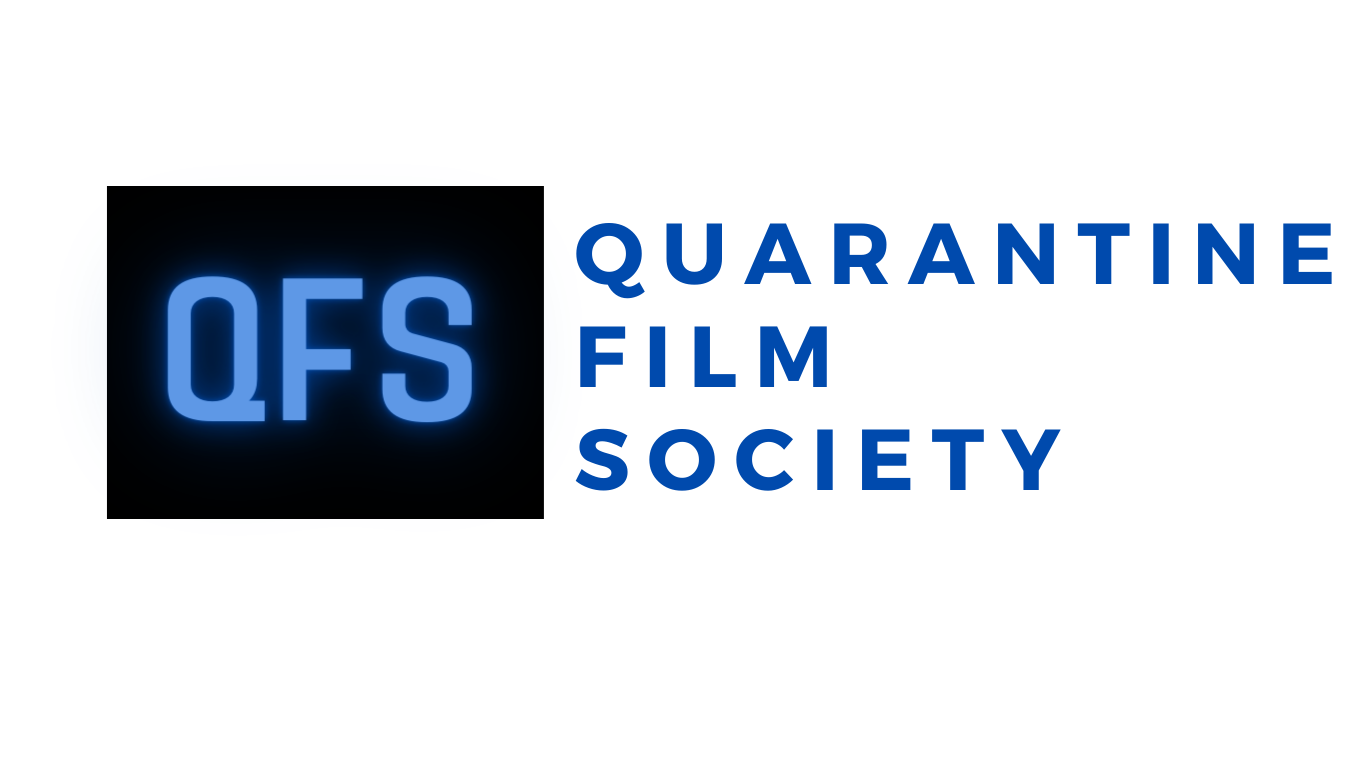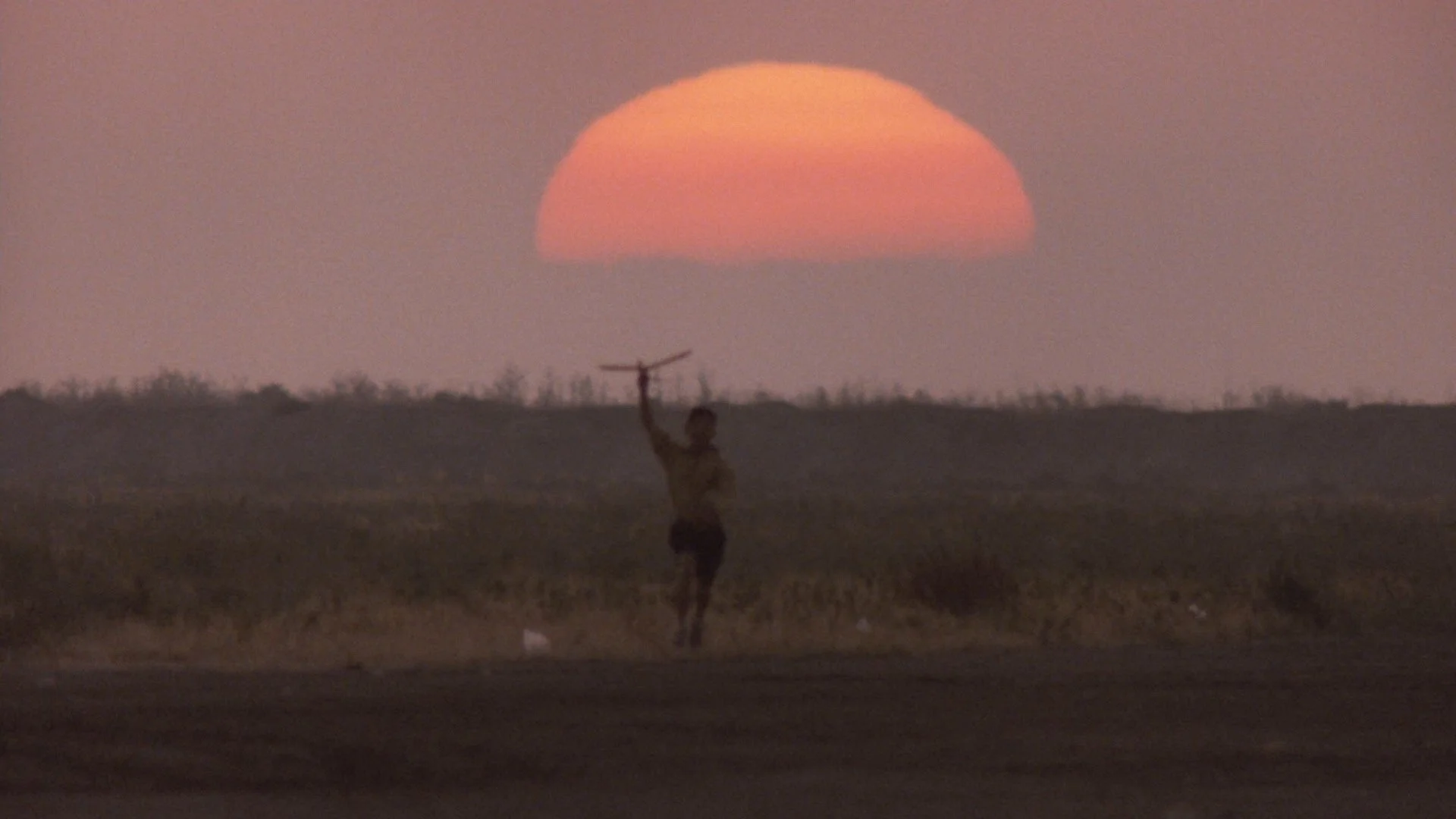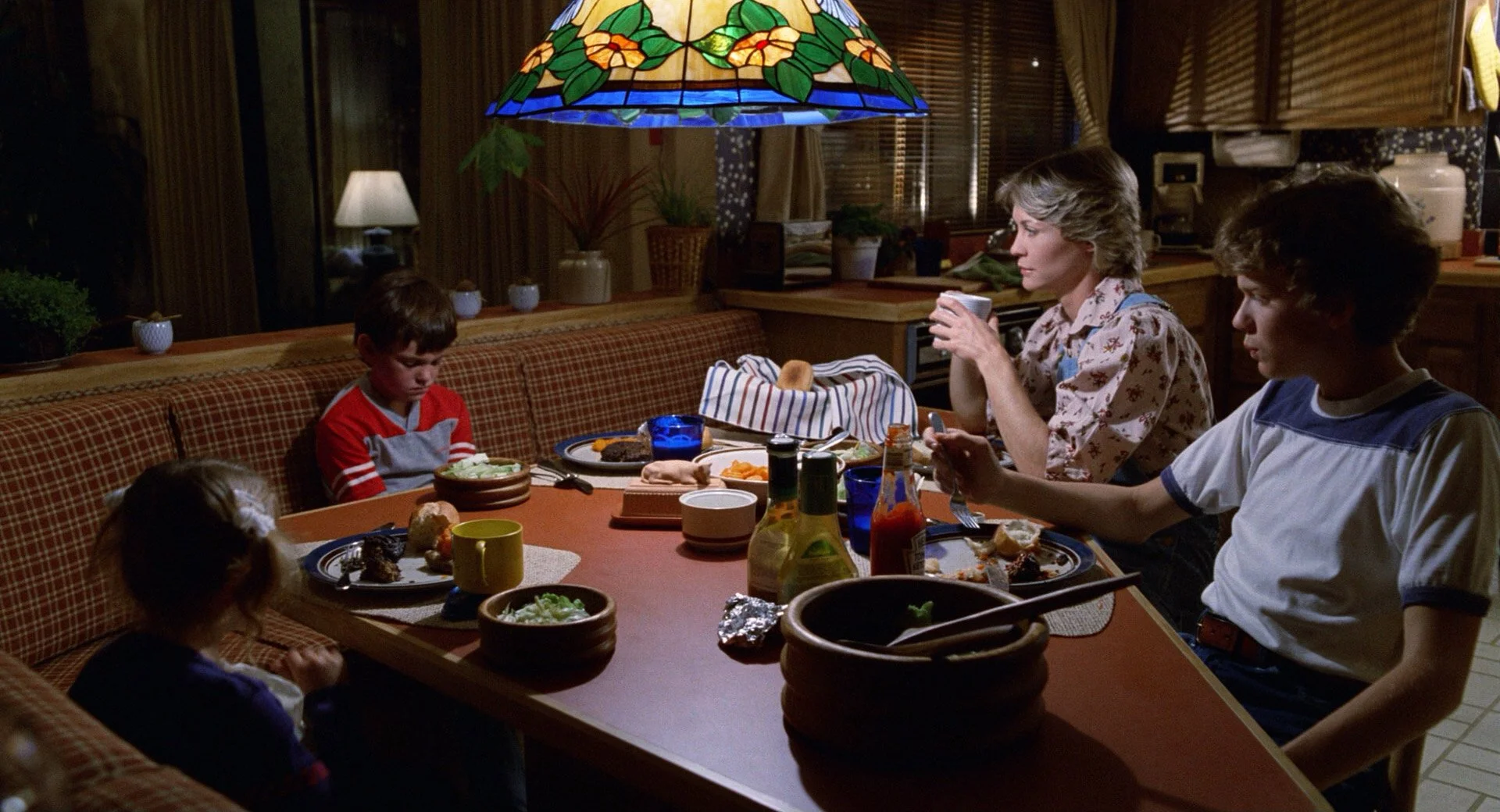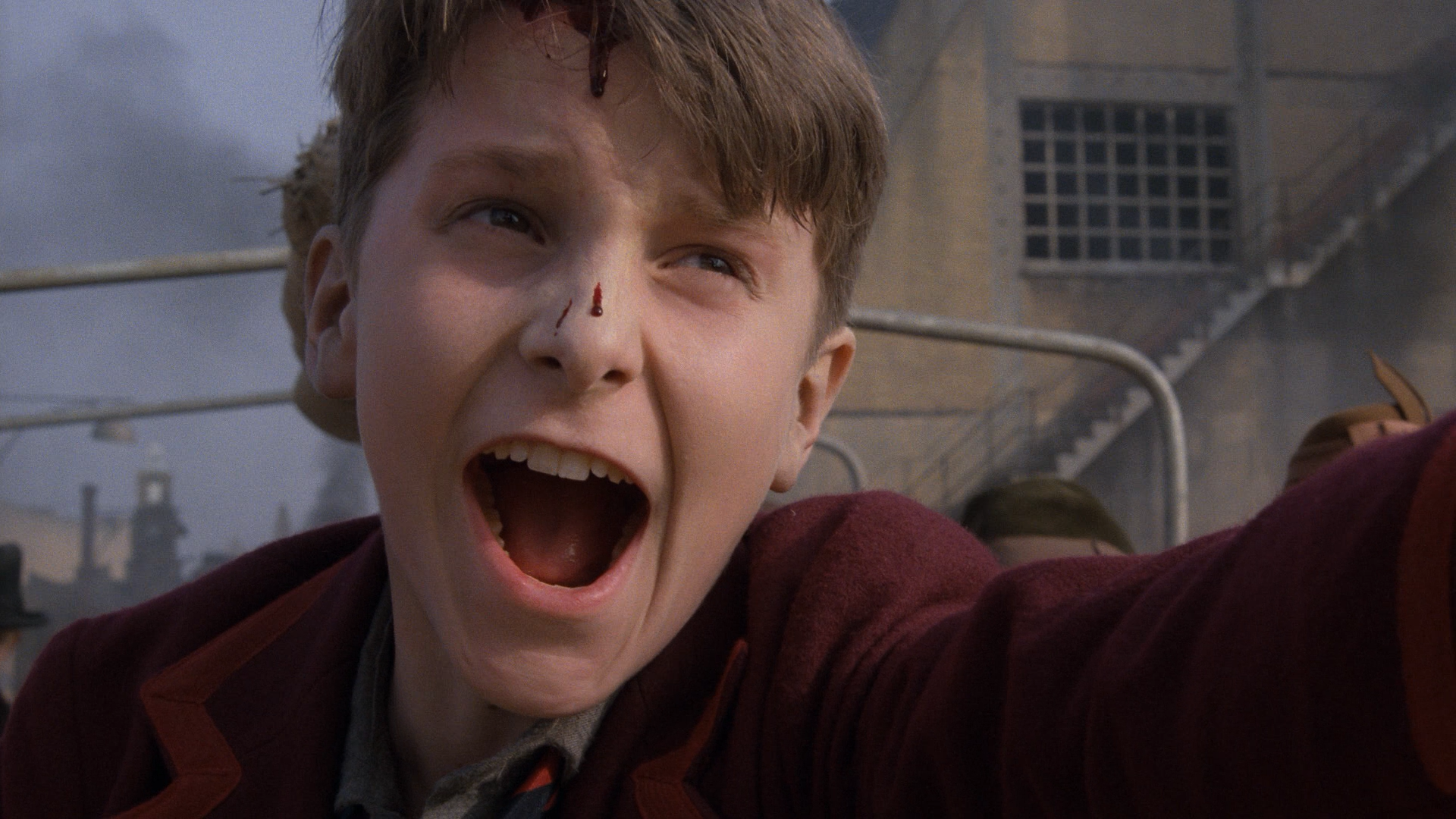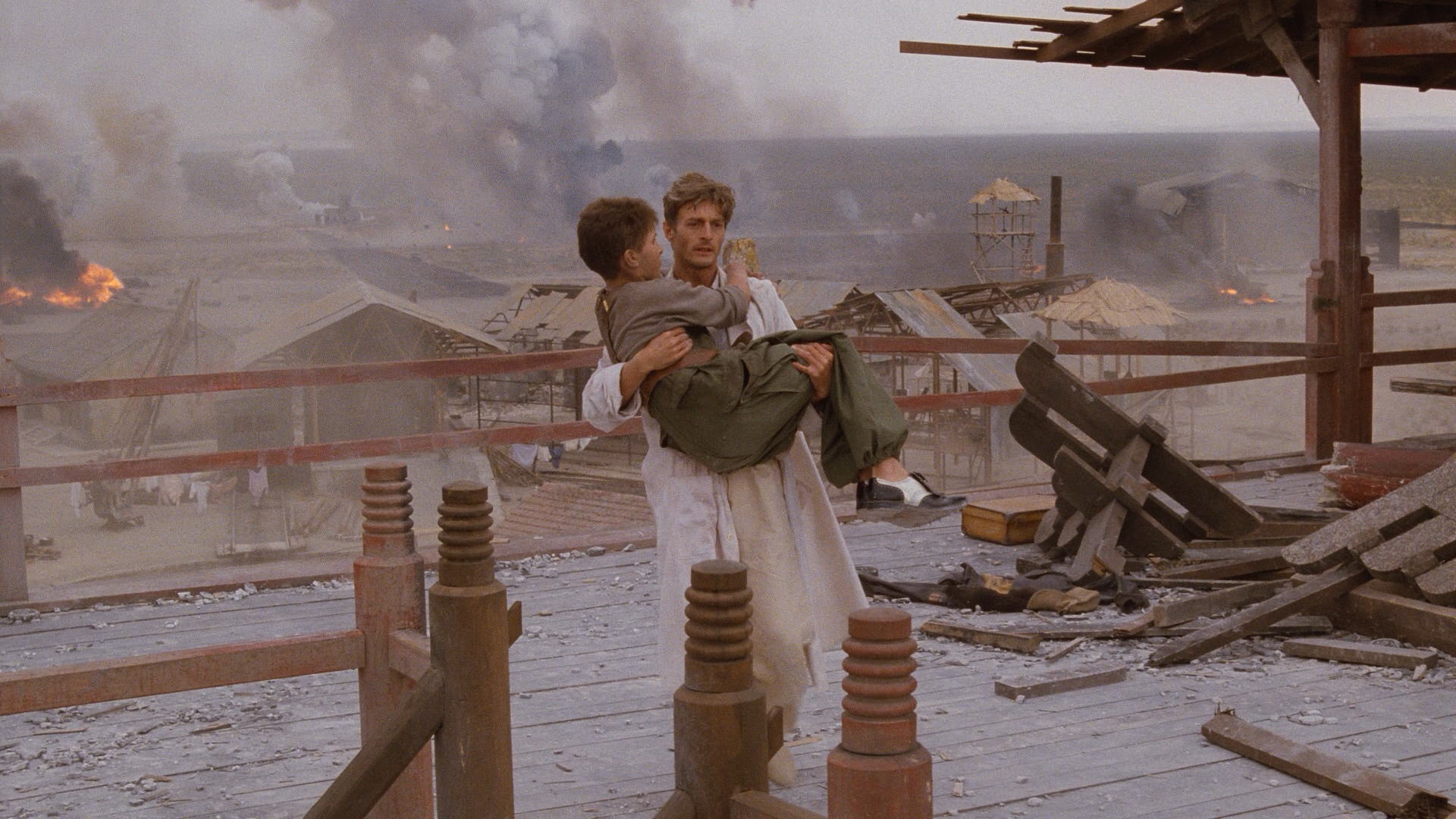Empire of the Sun (1987)
QFS No. 177 - The invitation for May 28, 2025
This weekend celebrates Memorial Day, so I felt like it’s a good time to watch a war film. And boy, it's a tall order to pare down which film from World War II to select. There are ones that depict the true brutality of combat that the Quarantine Film Society Select Committee on Excellence (QFSSCoE) was tempted to select. But instead, I convinced them to opt for one of the very few Steven Spielberg films I haven’t seen for some reason, Empire of the Sun. (One of the others being 1941 (1979) – which I was very much tempted to select for its notoriety and is technically a World War II film as well.) This is our third selection by the master after Indiana Jones and the Last Crusade (1989, QFS No. 50) and The Fabelmans (2022, QFS No. 101). We’d been averaging a Spielberg film every 50 selections or so, which means we’re overdue.
This year marks the 50th anniversary* of Jaws (1975), the film that made Spielberg a household name. So revisiting a Spielberg film feels like an appropriate thing to do as we approach the summer. You can make the case, as many have, that Spielberg invented the “summer movie” with Jaws. Empire of the Sun, however, is not a summer movie. It was released when I was a kid and I recall the reaction to the film was lukewarm. “Lukewarm” or course, is a relative thing, given the stratospheric heights and expectations of a Spielberg film of the time. In the handful of years before Empire of the Sun, Spielberg directed Raiders of the Lost Ark (1981), E.T. the Extra-Terrestrial (1982), Indiana Jones and the Temple of Doom (1984) and (oddly) The Color Purple (1985). That’s pretty astonishing when you think about it, not to mention he produced The Goonies (1985) and Poltergeist (1982) in that span as well.
Empire of the Sun falls into the “serious” film category of Steven Spielberg, one that will become more finely honed by the time he directs Schindler’s List (1993) and continues into Saving Private Ryan (1998), Munich (2005) and the like. Also features a very young pre-Batman Christian Bale, as well as some other faces I’m looking forward to seeing on the screen.
Very much eager to see another movie by the one of the people whom I’ve not yet met who is most responsible for my love of movies. Take some time to watch Empire of the Sun and discuss below!
*What.
Reactions and Analyses:
Jim (Christian Bale) has been separated from his family, survived on his own after the Japanese captured Shanghai at the onset of World War II, only to find himself with two American grifters, Frank (Joe Pantoliano) and Basie (John Malkovich) who don’t appear to have his best interests at heart. They take the British boy in but then soon decide to sell him into slavery or some sort of bondage. He’s a semi-valuable commodity to them.
It’s early in Jim’s adventure chronicled in Empire of the Sun (1987), and Basie is unable to get a good price for the young boy, presumably because he’s too weak but it’s not clear since Basie haggles with the Chinese man in Mandarin or Cantonese. Jim walks away with Basie and Frank and asks, more out of curiosity than anything else, why weren’t you able to sell me?
And here is where we know this is a Steven Spielberg film, especially from the 1980s. The question is delivered in the tone of curious musings of a boy, which is much like the film – a curious, almost nostalgic exploration of war-torn Southeast Asia. Had this been another filmmaker you could imagine Jim would be horrified at the thought of being sold to strangers who don’t speak a language he fully understands, completely separated from his parents, starving and attempting to survive. And then some Americans he’s trusted try to sell him? His response would more likely be closer to, what the hell – you were trying to sell me into slavery?!
This is a counterfactual of course; the fact of the matter is that it’s Spielberg who made Empire of the Sun and in many ways it’s a thrilling adventure, complete with hallmarks of a Spielberg film – the good and the oft criticized, the sanitized and gauzy perspective of the past that characterized his first decade as the world’s best known living filmmaker. Six short years after Empire of the Sun, this same filmmaker will have his eyes opened to the horrors of the Holocaust as he made Schindler’s List (1993), and five years after that he continues on into the grim brutality of war in Saving Private Ryan (1998). Another counterfactual – would the Spielberg of post 1993 have made Empire of the Sun a more brutally honest depiction of war and what a child would be exposed to in a war-torn land?
No one can know for sure (the nature of counterfactuals). Few filmmakers have been dissected or psychoanalyzed as thoroughly as Spielberg has been and much has been made about his portrayal of a child with a father, his own relationship with his father being strained and complicated. He even made a film about that very thing (The Fablemans, 2023, QFS No. 101). E.T. The Extra Terrestrial (1984) of course is one of the prime examples of this strain, of a boy living without a father, his mother beleaguered at home after her divorce.
But it’s here too in Empire of the Sun. The boy is temporarily orphaned by war but manages to find and forge a complex father relationship with Basie. Does Basie care for Jim or is Basie using him? At times they seem like a good match, but Basie routinely betrays Jim. When the Japanese are selecting captured refugees from the civilian assembly center to send to another camp, Basie doesn’t stick up for Jim or claim him as a child, even though they’ve been journeying and surviving together. Basie’s even been helping Jim grift at the assembly center in order to survive, often taking food cups from the deceased. Instead, it’s Jim’s own initiative that lands him on the transport vehicle – he jumps on the truck and shouts to the driver that he knows Shanghai like the back of his hand, having lived only there his entire young life.
Later, when they’re at the internment camp in the waning stages of the war, Basie promises if they attempt an escape, he’ll take Jim with him. The Americans and Allies close in on the prison camp and the Japanese soldiers and guards begin to flee. Basie disappears and leaves a devastated Jim behind. If you were using cinema to psychoanalyze Spielberg (as so many do) – this is very deep, this portrayal of a father betraying the son, disappearing and leaving the boy to fend for himself in a time of urgent need. Simultaneously, Jim’s found another father figure in the camp – the British physician Dr. Rawlins (Nigel Havers), who teaches Jim in a more traditional academic sense than Basie’s world-savvy scrappiness. Dr. Rawlins even carries him like a baby after the American P-51 Mustangs bombard the nearby Japanese base and Jim realizes, though the war is coming to an end and he’ll soon see his parents, he doesn’t remember what they look like. The thought emotionally cripples him.
The Japanese vacate the internment camp and Jim marches with the others through the wilderness back to civilization. Their journey is strange, plagued by the surreal visions caused by starvation and uncertainty. They are free but their fate is almost more dangerous than living in the internment camp where they have built a society. The refugees arrive at a stadium full of the riches taken from the citizens of Shanghai, many of them wealthy British ex-pats like Jim’s family. He even finds a car that looks like his, one of the final images he has with his parents.
But Basie’s story with Jim isn’t over yet. After surviving on his own, Jim comes upon air-dropped relief supplies from the Red Cross and manages to stave off starvation. But those pods, gifts from the heavens, attracts marauders – including the sudden return of Basie, who suggested this is where his life would take him, as a pirate on the Yangtze River. Jim, having connected before with a young Japanese pilot (Takatarô Kataoka) he saw through the fences of the internment camp, has serendipitously reconnected with Jim after what appears to be a failed kamikaze mission. The young men connect and share fruit, but their connection will be short lived. The pilot is shot and killed by one of Basie’s men who thinks he’s protecting Jim from being attacked. So not only has Basie betrayed Jim, attempted to sell him, and used him various times, he’s also responsible for killing a “friend.” An abusive father (figure) for sure.
Jim finally reunites with his true family, his mother (Emily Richard) able to recognize him amongst the other orphaned or displaced children recovered by the Allies. Much of Empire of the Sun, in addition to its adventure through the ravaged war-torn countryside, concerns itself with the failure of adults to protect children. Or children forced to grow up faster than they should have to, being exposed to the horrors of the world – which includes being disappointed in the world created by the adults around them and being let down by those who are supposed to be protecting you.
It’s hard not to use the screen as psychoanalysis, just as it’s usually the case that filmmakers often share their deepest inner pain on screen. It’s perhaps only Spielberg in all the annals of cinema who has managed to do it with such a massive canvas without interference, as he does in Empire of the Sun and beyond.
